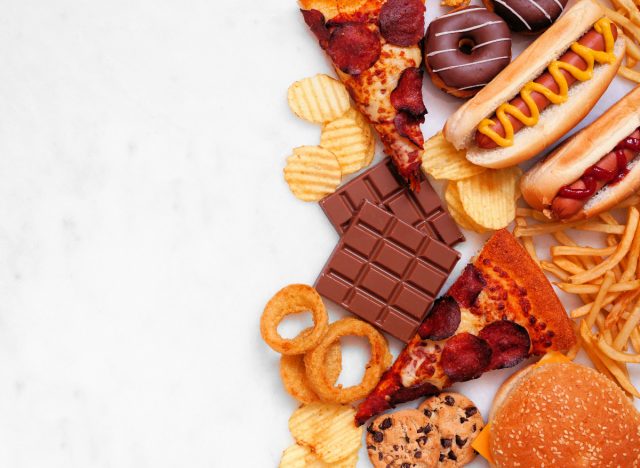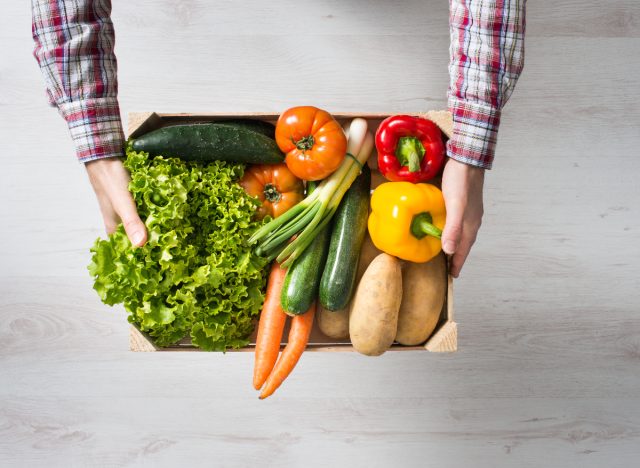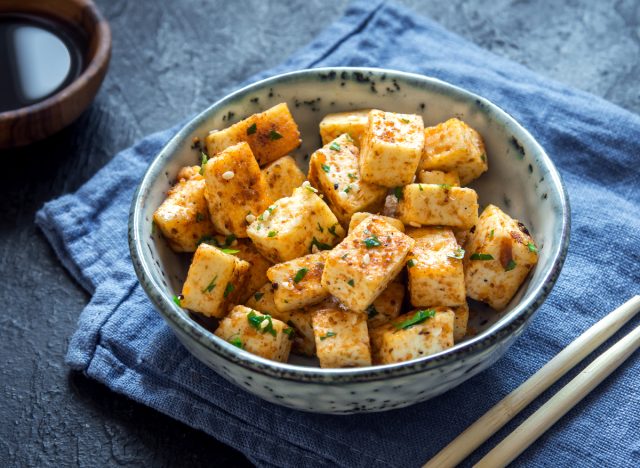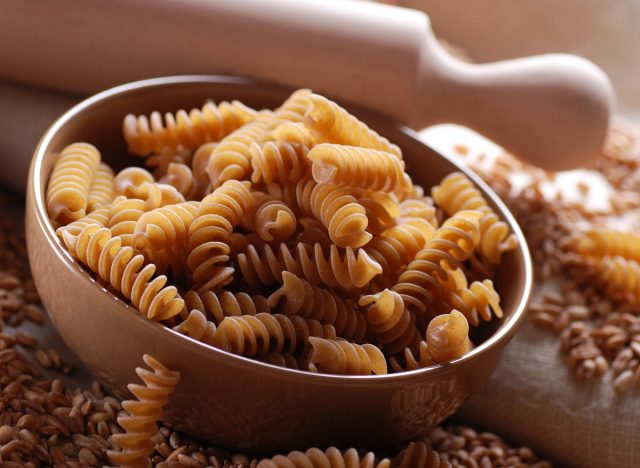Weight loss fads and diet trends come and go, but the daily habits that help you lose weight are timeless. You can try any number of diets, including keto, high-carb, low-carb, high-fat, low-fat, vegan, or even carnivore. Still, if you’re not doing other healthy lifestyle habits along with a nutritious diet, you’re unlikely to reach the weight loss goals you’ve been working so hard to achieve. That’s why we chatted with Blanca Garcia, RDN, a registered dietitian nutritionist with Health Canal, who shares her best weight loss tips to transform your body after 60.
While the key to weight loss is eating primarily whole foods (while in a caloric deficit) combined with regular aerobic exercise and resistance training, many older adults believe they’re stuck with the bodies they have at 60 and beyond. However, you can take comfort in knowing that regardless of age, you can improve your fitness and transform your body. Also, keeping your weight in a normal range is essential to healthy aging, according to the National Institute on Aging. Being overweight—especially older adults—can increase the risk of developing several chronic and potentially deadly health conditions, including heart disease, diabetes, hypertension, and stroke.
Fortunately, lowering your risk of these health conditions while transforming your body is entirely within your control. So whether you’re in your 20s, 80s, or anywhere in between, read on to find out Garcia’s universal tips for shedding pounds and getting healthier at 60 and beyond.


Everyone knows staying hydrated is essential for good health, but drinking more H2O can also help you shed pounds and transform your body after 60. For example, a mini-review published in Frontiers in Nutrition concluded that drinking more water promoted weight loss and reduced risk factors for obesity and type 2 diabetes.
“To transform your body after 60, water is indispensable. As you age, you’re more susceptible to dehydration due to slight temperature increases or inadequate water intake,” explains Garcia. “Also, water is essential in a weight loss program because it helps keep you in balance and optimizes fat-burning potential.”


One of the most impactful steps to losing weight at any age is removing ultra-processed foods from your diet. According to a study published in Cell Metabolism, people who followed a diet high in ultra-processed foods experienced significant weight gain and averaged 500 calories more per day than those who consumed minimally processed foods.
READ RELATED: 21 Upbeat Songs to Keep You Running Into Fall
“Highly processed foods include pre-packaged foods, frozen dinners, pastries, cookies, and anything with added flavors, colors, fillers, and preservatives,” states Garcia. “Most of these foods lack quality ingredients and nutrients that benefit the healthy repair of cells and tissues. These foods are dense in refined carbohydrates, added sugars, and ingredients, and contribute to weight gain and nutritional imbalances in the body.”


“Just because you’re 60, [that] doesn’t mean you don’t deserve quality ingredients. Actually, 60 is when the best of the best should be on your plate,” says Garcia. “That means including a large variety of vegetables in your diet. Each vegetable provides a variety of vitamins, minerals, fibers, and fluids while being low in calories, helping you get the nutrients you need while promoting weight loss.”
Research has found that increased vegetable intake can reduce the risk of weight gain by 82%. Also, another study found that women’s waist circumference shrinks by 0.36 centimeters (cm) over a five-year period with each vegetable serving.


Protein is a beneficial nutrient for weight loss because it increases satiety, which helps decrease calorie intake. However, the type of protein you put on your plate is as equally important as the amount. “Animals aren’t the only source of protein. You can also get protein from plants. Plant-based proteins include lentils, beans, garbanzos, quinoa, soybeans, and tofu. The advantage of plant-based proteins is that you can get the protein without the saturated fat and extra calories that can sabotage weight loss goals,” Garcia says.


Many people villainize carbohydrates as being detrimental to weight loss. However, the low-quality refined carbs in processed foods contribute to weight gain—not the healthy, high-quality complex carbs and fiber found in whole wheat grains that can help you lose weight.
“Whole wheat grains mean the fiber hasn’t been removed. These foods include whole-grain pasta, brown rice, wild rice, whole-wheat bread, and whole-wheat tortillas,” says Garcia. “Including foods that are whole wheat grains will provide complex carbohydrates and fiber to help you feel full longer and eat less.”
Source:





